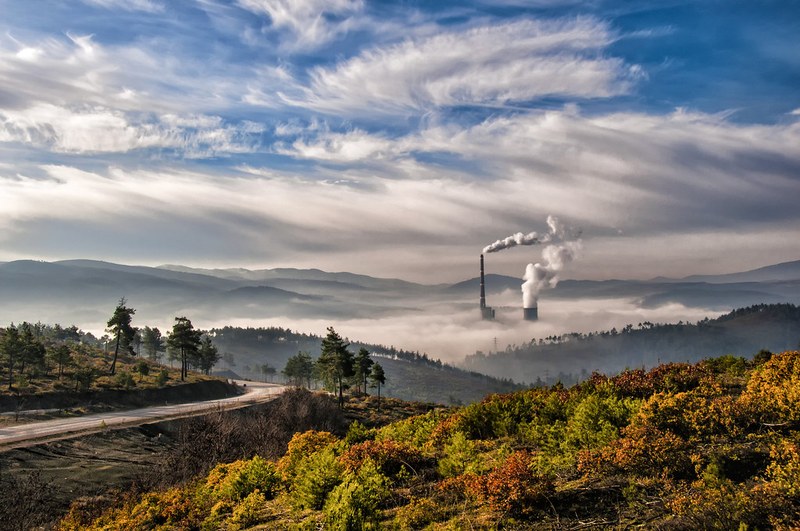- Brave New Digital World
- Posts
- Brave New Digital World E03
Brave New Digital World E03
Chronicling Technologically-Turbulent Times: Buckle up!
S01E03: Plotting a flight path to Future’s Frontier
You’ve entered a Brave New Digital World, where lofty aspirations fuse with dark fears in an anvil of hope.
“Animals don't behave like men,' he said. 'If they have to fight, they fight; and if they have to kill, they kill. But they don't sit down and set their wits to work to devise ways of spoiling other creatures' lives and hurting them. They have dignity and animality.”
Even a stopped clock tells the right time twice a day
As global conflict escalates and news cycles bombard us with brutal despair, this episode veers sharply toward a faint beacon of optimism.
Here you’ll find counterpoints to the uncertainty and violence that envelops large portions of the world today. Despite humanity's capacity for profound cruelty, we also excel at developing technologies with the potential to make the world a better place for all lifeforms. Let’s take a short break from the barrage of conflict propaganda and utterly chilling news updates and take a moment to celebrate innovation and progress in science and technology. Such developments are a beacon of hope for humanity amidst the encroaching cold, dark winter.
“Many human beings say that they enjoy the winter, but what they really enjoy is feeling proof against it.”
The over-arching theme of this episode is exploration of frontiers: the charting of unexplored territories. Pessimists often lament that all the important discoveries happened already; this week’s reading list begs to differ. We are in a new age of discovery: of the human mind, the abyssal expanse of the ocean floor, outer space, clean energy, quantum computing and - of course - artificial intelligence.
As AI development accelerates into the stratosphere, innovation will be catalyzed by ever-more-sophisticated AI models, which will in turn be accelerated by the machine-learning feedback loops. The flywheel of progress is accelerating - not slowing down - to the extent that our greatest risks are posed not by stagnation, but of humanity’s ability to keep pace with the increasing rate of breakthroughs.
Innovation in areas largely or completely unrelated to computing/IT is ramping up as the human race turns the AI lens to healthcare, biochemistry, transportation, energy, agriculture and pretty much every other field of human endeavor.
This week’s journey examines breakthroughs exploring the human brain, then looks progressively outward in scope to the far reaches of the cosmos, with a brief diversion to consider how financial institutions are using social media for signals of system failure.
“Creation seemed to come about in a chain reaction.”
S01E03 Reading List:
In a groundbreaking study, researchers at the Salk Institute for Biological Studies have created an ‘atlas of human brain cells’ after examining over half a million cells from three brains, paving the way for advancements in treating brain disorders. This breakthrough unveils hundreds of cell types in intricate detail, heralding a new epoch in brain science. While illuminating how brains evolve, age, and respond to disease, the study ignites hope for understanding, and possibly reversing, detrimental brain changes
From human brains to our attempts to recreate the thinking process in machine form: here’s an insightful essay suggesting that we've already touched the threshold of Artificial General Intelligence. The author makes the case that some recent AI models, while specialized, exhibit characteristics of AGI. Maybe don’t call the Turing Police just yet, though; most AI enthusiasts disagree with the central thrust of the essay. However, this perhaps underscores the urgent need to more precisely define AGI, so we know it when it arrives?
“We need not to be let alone. We need to be really bothered once in a while. How long is it since you were really bothered? About something important, about something real?"
In yet another display of technological prowess, China's Photonic JiuZhang series has set a new speed record. The team achieved quantum supremacy by solving a boson sampling problem — a challenge believed to be tough for classical computers but more tractable for quantum systems. Their quantum solution purportedly achieved in what a supercomputer would take 20 billion years to accomplish in just over a microsecond.
While we’re all still waiting for our flying cars and robot butlers, China is making strides in quantum technology, albeit that with a breakthrough that’s set up for quantum success and solves a rather contrived theoretical conundrum rather than something more practical like, say, rendering Public-Key Encryption obsolete overnight. Perhaps that’s a good thing!
"All that you touch
You Change.
All that you Change
Changes you.
The only lasting truth
Is Change.
God
Is Change.”
Most people are at least wary of the prospect of global financial collapse, although a growing contingent of anarcho-capitalists, Marxists, crypto-evangelists and assorted anti-establishment thinkers view the collapse of the current financial World Order as an inevitable precursor to a more enlightened world of free, private transactions.
The banking system is sometimes revered as the bedrock of capitalism, or despised as a precarious edifice upheld by the self-serving elite. Now, consider this: the Bank of England is trawling through sentiments on X (formerly Twitter) to spot early signs of financial meltdown. Such aggregate-snooping by our 'Money Mafia'* purports to ensure we don't spiral into a Mad Max scenario by teatime.
“Modern science should indeed arouse in all of us a humility before the immensity of the unexplored and a tolerance for crazy hypotheses.”
Let's momentarily set aside our skepticism about the perennial ‘just around the corner’ status of Nuclear Fusion. America is committed to unveiling a functional fusion reactor by 2035, marking a significant stride toward a future of plentiful, clean energy. The landmark achievement of fusion ignition in December 2022 demonstrates milestone progress. While engineering challenges remain, the potential rewards are immense: an incredibly efficient energy source with minimal waste. With AI already playing a pivotal role in accelerating this research, I'm optimistic that America might even outpace its currently-ambitious-sounding 2035 prediction.
From Nuclear Fusion to Nuclear Fission… Of the two, nuclear fission has garnered a more controversial reputation due to events like Chernobyl, Fukushima, and its use during WWII. The US Space Force is pressing on with plans to deploy nuclear fission reactors in space, despite concerns from some quarters. While there may be valid apprehensions surrounding potential nuclear accidents and sabotage, the technology could herald a new era for spacecraft — allowing them to travel greater distances faster, and ushering in a bold new chapter in human space exploration and discovery.
The ozone hole over Antarctica is back and bigger than ever, reaching a size of 26 million sq km. Scientists speculate that the eruption of the Hunga Tonga-Hunga Ha'apai volcano in 2022 may have contributed to this year's unusual ozone patterns. But hey, don't worry! The Montreal Protocol is here to save us all by phasing out harmful substances and restoring the ozone layer...by 2050. So just sit tight and enjoy your sunburns for a few more decades!
“Of course they needed to care. It was the meaning of everything.”
In the interests of balanced — not to mention positive — reporting, it’s worth remembering that the ‘Hole in the Ozone Layer’ was once considered a major climate emergency, but has, by and large, been a great demonstration of effective global mobilization to repair human-caused ecological distress.

Ozone Oscillations: Tracking the Atmosphere's Healing Pulse
NASA is back at it again with their black hole sonifications! This time, they’ve focused on the black hole at the center of the Perseus cluster, along with another famous black hole in Messier 87. By extracting sound waves from astronomical data and scaling them up by 57 and 58 octaves (that's quadrillions of times higher than their original frequency), NASA has created a cosmic remix that humans can actually hear. How cool is that!? (Sound recording and player in the link below: listen for yourself)
“…black holes ain’t as black as they are painted. They are not the eternal prisons they were once thought…things can get out of a black hole both on the outside and possibly to another universe. So if you feel you are in a black hole, don’t give up – there’s a way out.”
"Nolite te bastardes carborundorum."
(Translation from mock Latin: "Don't let the bastards grind you down.")
*Fictional Terminology Guide: Money Mafia
A colloquial and irreverent term referring to the collective of financial institutions, banks, hedge funds, and influential financial players, often insinuating undue influence or control over economic systems.
Example: "Bob pondered if the pixelated banana he'd purchased for 50 ETH was his golden ticket into the Money Mafia or, conversely, a fast track to their blacklist. At times, the weight of this uncertainty was almost too much to bear."“We cannot despair of humanity, since we ourselves are human beings.”








